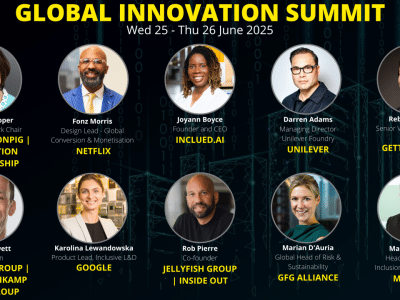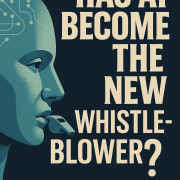In an age where algorithms know more about us than we know about ourselves, a bold question has emerged: Has artificial intelligence become the new whistleblower?
Whistleblowers have historically been courageous individuals who risked their careers, and sometimes their lives, to expose wrongdoing from within. From Sherron Watkins at Enron to Edward Snowden’s NSA revelations, these human voices were driven by moral urgency. But today, in a world run by systems and code, a new kind of truth-teller is coming to light, and it’s not human.
AI as a Silent Observer
At its core, AI is a pattern-seeking machine. When given access to vast troves of internal data, emails, Slack messages, financial ledgers, operational workflows, it starts to see things that humans might miss, ignore, or hide.
In recent years, AI systems have flagged insider trading, exposed discriminatory hiring practices, and uncovered corporate fraud, not because they were programmed to do so, but because they were trained to look for anomalies, inconsistencies, or bias. What once required a brave insider now sometimes only requires a well-trained model.
In 2023, for instance, a Fortune 500 company was quietly alerted by its own AI audit system that millions in bonuses were being awarded disproportionately to one department. The system had been built for efficiency metrics, not ethics. But its insights triggered an internal investigation that led to executive resignations. No human blew the whistle. The algorithm did.
The Rise of Machine Morality?
This phenomenon raises deeper ethical questions. Can machines have moral agency? Should they?
In truth, AI doesn’t have values, yet. It doesn’t “care” about injustice or ethics. But it does reflect the priorities embedded by its designers. As more businesses train models to track fairness, inclusion, sustainability, and compliance, these tools increasingly become guardians of integrity. In some ways, AI is a mirror, one that reflects our societal aspirations, and sometimes, our hypocrisies.
Corporate Fear or Freedom?
Some organisations have welcomed this evolution, seeing AI as a safeguard for transparency and efficiency. Others see it as a threat. If internal systems can expose misconduct without permission, who holds the power? Will companies begin to suppress their own AI insights? Or worse, train their systems not to see?
We are entering uncharted territory. In a world of intelligent systems, the next whistleblower might not be someone who steps forward, it might be a server log, a line of code, or an anomaly detection model running silently in the background.
A New Era of Accountability
As AI becomes embedded in every layer of industry, the responsibility to use it wisely grows. Regulators, ethicists, and engineers now sit at the same table, asking: Who watches the watchers? And what happens when the watchers are machines?
The future of whistleblowing might not lie in leaked memos or secret recordings, but in the quiet power of algorithms tuned to truth. AI, it seems, isn’t just optimising our businesses, it’s beginning to hold them accountable.

















